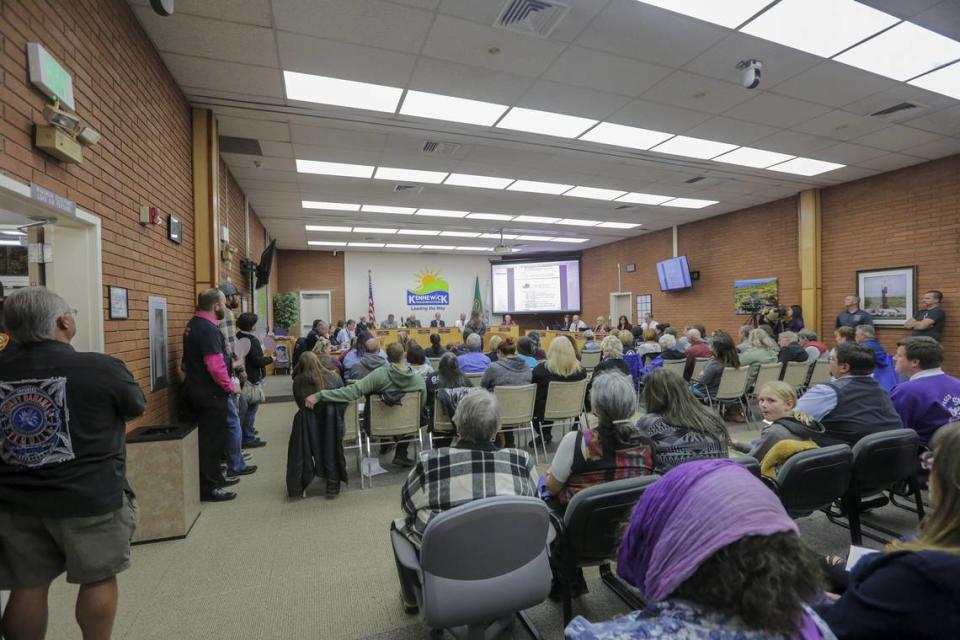Kennewick revamps its council ethics policy after lasting 1 year without a complaint
The Kennewick City Council overhauled its relatively new council ethics policy at its meeting this week, making its process for complaints against council members less formal, quicker and less costly.
The council adopted its first ethics policy for council members after censuring Councilman John Trumbo for misusing his office and investigating an unfounded drug rumor against a fellow councilman in 2019.
That was followed by three ethics complaints being filed.
However, the current council has now gone a year without a complaint.
Under the new ethics policy, the city will no longer contract with an outside attorney for hearings on complaints.
Instead, council members will first take up the issue one-on-one to see if it can be resolved without involving the full council.
The next step would be scheduling a discussion in a closed meeting of the council, as allowed by Washington state law. No decision could be made in that meeting.
That will be followed by a 14-day cooling-off period before a formal complaint may be filed if at least two council members want to pursue further action.
The complaint then would be discussed at the next council meeting. A full public hearing will be held only if requested by the council member who is the subject of the complaint.
Any sanctions against the council member would follow with a vote of the council.

Complaints would be required to be initiated within 45 days of knowledge of a potential ethics violation by a council member.
The council had not had what it considered an ethics issue for about 20 years until the last few years, said council members at a workshop on the ethics policy earlier this month.
The recent issues appeared to be a matter of personalities, said Councilman Brad Beauchamp.
History of ethics complaints
After the formal ethics policy was adopted, Trumbo was accused of abusing his position and had an ethics complaint decided against him in 2020.
He was accused of identifying himself as a councilman when he made a phone call looking into the financial dealings of a former state legislator. Trumbo argued that he said he was not calling in a city capacity, but an ethics officer ruled against him.
Also in 2020 an ethics complaint was filed against former Mayor Don Britain.
Britain was fired in 2019 from his job as a Washington state Department of Social and Health Services case manager after an administrative investigation into his relationship with a female welfare client.
The city ethics complaint, related to the investigation, was dismissed by an ethics officer without a hearing.
Then in 2022 an ethics complaints was filed, and later dismissed by an ethics officer, claiming that now Mayor Bill McKay and Councilmen Beauchamp and Trumbo knowingly violated the state’s open meetings law to get council members to sign an ethics complaint against Britain in January 2020.
The only issue that current council members were aware of when a council considered taking action related to a member’s behavior before those in 2019 to 2022 was in the 1990s.
The late Councilman Tom Walker was censured by the council in 1995 for criticizing other council members and ghost-writing Tri-City Herald letters to the editor supporting candidates.
Then he took a city worker to small-claims court over a $19.50 permit for installing a water heater in the councilman’s home.
Walker claimed the city official was harassing him for not applying for a permit than no one else had applied for in two years and stopped city building officials from inspecting the installed water heater. He was charged with obstructing a city servant.
He asked the court for more than $2,000, most of it for intentional infliction of emotional damages. A judge dismissed the claim and reprimanded him for not showing a better example of the civic process.

